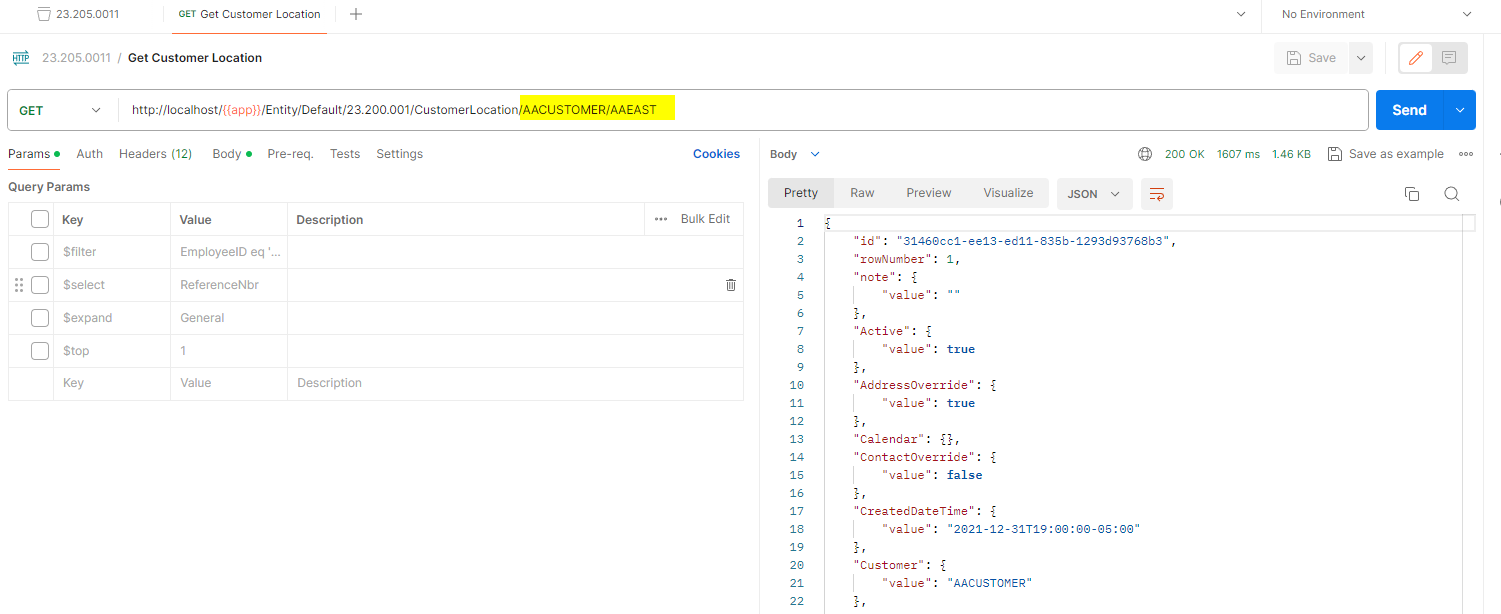Hi everyone,
When sending a GET request for the CustomerLocation with a LocationID the API fails with the following error “Operation is not valid due to the current state of the object." However, if the LocationID is removed the request will succeed. Meanwhile, every other object like CustomerPaymentMethod requires an ID or they will fail and report the same error.
- Why is CustomerLocation different ?
- Is it possible to detect if a ID is supported in the API ?
I am using version 23.200.001 and the Default endpoint.
Thank you.
Best answer by Dmitrii Naumov
View original




